Up until a few years, choosing storage for your new gaming rig wasn’t a big issue. It was just about how much storage you wanted. 2 TB? 3? No worries. Just order an HDD off the internet and stick it in. That was it.
However, a few years back, SSD or Solid State Drives made an entrance into the commercial space. They were pretty expensive, but they were available at good enough prices for some people.
Now, as SSD prices have begun to fall, we’re now seeing the advent of SSHD (Solid State Hybrid Drives). What was, just until a few years ago, a simple industry has now suddenly become quite overcrowded with a quagmire of products and options all hiding under numbers and technical specs.
So, if you’re building a new rig or even just upgrading your storage, all this might seem rather confusing. The aim of this article is to clear all that up, essentially.

We’ll start off by taking a look at what SSDs, HDDs, and SSHDs really mean and then we’ll get to the business of actually selecting the best hard drive for your latest build.
SSD — Solid State Drive
SSDs, in essence, are circuit boards with some memory chips on top. Think of it as a big USB drive. The method of storage, called flash, uses memory chips like the NAND chips to store data.
A NAND chip basically flips arrays into different states of electric charge to store data. In an SSD, nothing ever ‘moves’. That’s why it’s called a ‘Solid’ state drive. Power to these SSDs usually comes with a SATA or PCIe which also helps in data transfer.
To really understand why this setup is better, you’ll have to understand how HDDs work. We look at it in the next section, but it suffices to say that SSDs are very fast and considerably smaller than HDDs.
So, speed and size, those are two advantages that an SSD offers.
As far as the speed is concerned, SSD is miles ahead. There are at least two instances where you’ll definitely feel the need for speed, as it were. Copying large files and booting up Windows. Traditional HDDs copy files at about 40 -130 MBs per second.
SSDs read and write data at least 500MBs per second. That’s a huge divide. What’s more, some really expensive SSDs can actually write at about 3.1 – 3.4 GBs per second.
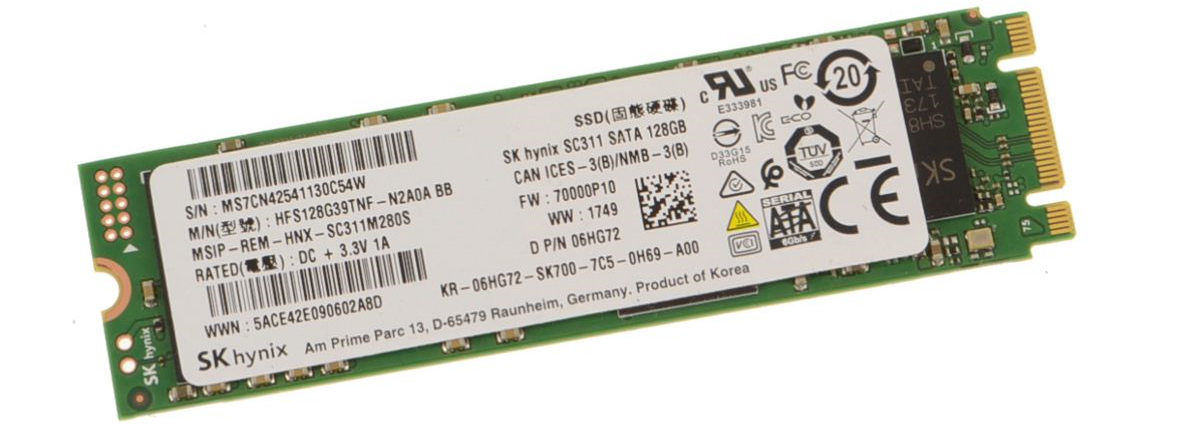
That’s how good an SSD is.
Apart from this, you’ll also see a marked difference in boot times with an SSD. Windows will boot much, much faster. We’re talking within a minute here.
So, that’s the first advantage.
The second is the size. SSDs are smaller and as a result, they’ve become quite popular in the laptop market.
Now, it’s important to begin by understanding that all entry-level laptops and most mid-range laptops still come with an HDD drive. This is the high-end segment that we’re talking about here. Some mid-range laptops and a lot of high-end laptops now come with SSDs.
The reason for this is quite simple. In a laptop, space is at a premium. A smaller storage drive makes space for other stuff. Another reason is power consumption. SSDs need a lot less power than an HDD. This means that they improve battery performance, a crucial aspect, on a laptop.
The Myth of a Short Lifespan
If you click around online, you’ll see that a few people will raise this concern that SSDs have a very short lifespan. Those concerns were true in the early 2000s. But, then again, SSDs weren’t mainstream in the 2000s.
The concerns are theoretically valid. In an SSD, data is stored on cells. The wear and tear of cells are quite high. A cell can only survive about 3000 write cycles and that sounds very bad. I mean, after all, we do write a lot of data these days. From movies to games, there’s a lot of writing that needs to be done and 3000 cycles just seem insufficient.
However, SSDs these days use something called wear leveling. The SSD ensures that each cell wears uniformly. This way, the SSD can last longer and that prevents the death of a cell, so to say.
SSDs also have spare cells now. So, if some cells die, they’re simply replaced.
So, what’s the lifespan of a modern SSD?
If you were to write data to your SSD 24 hours a day, it’ll still last several decades. Myths about small lifespans are just that — myths.
Best SSDs
We have a much more comprehensive guide on the best gaming SSDs on the market, but here are a few highlights:
Crucial MX500 — 1 TB
If you’re building a gaming rig, you need an awesome CPU and an even better GPU, yes. However, save times and load times are influenced by your storage device. When it comes to gaming, it’s hard to beat the MX500. It’s a brilliant SSD with almost 500 MB/s write speed and in the SSD lineup, it’s quite reasonably priced as well.
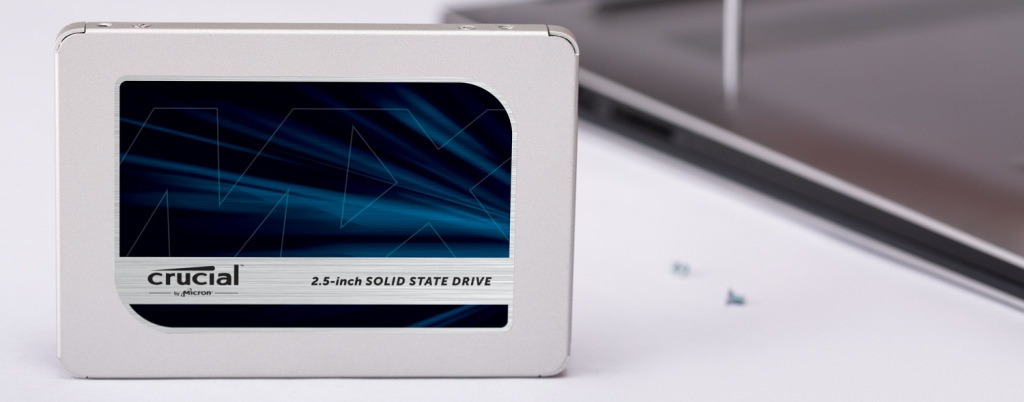
If value for money is a concern, the Crucial MX500 is pretty much the best on the market currently.
Samsung 860 QVO — 2 TB
There’s no doubt that, as of today, Samsung is the undisputed king in the SSD market. The 860 is a flagship model that delivers 500 MB/s write speeds and is very reliable. There are security precautions put in place for longevity too. It’s quite expensive, yes. But then again, it’s 2TB secure SSD storage. If you have a lot of sensitive information that you need to access regularly, this is the perfect choice for you.
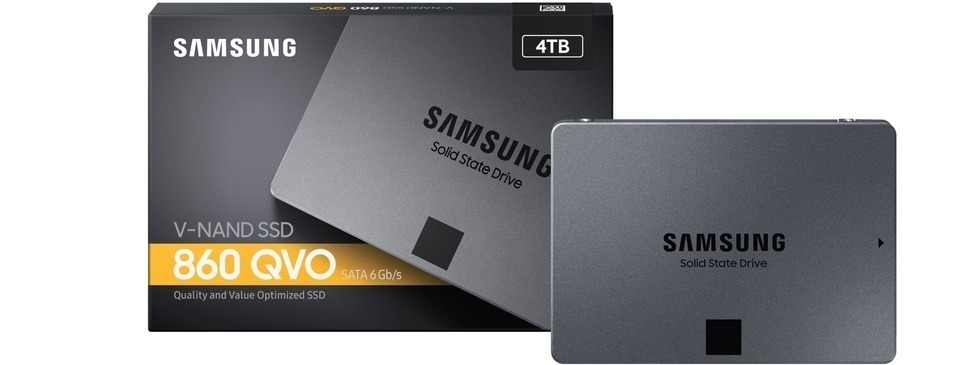
However, if it’s movies that you’re storing, it might be best to skip this.
HDD — Hard Disk Drive
HDDs are what most people have in their computers today. It’s what people have had in their computers since 1956 when IBM came up with it. It’s old tech — there’s no doubt about it. But the advantage is that the technology has been undergoing improvements ever since.
This means that it’s quite reliable, has a great lifespan, and most importantly, can store massive amounts of data. What’s more, it can do all this at a relatively inexpensive price point.
The way an HDD works is quite simple. There are a lot of disks with a ferromagnetic coating on top. The data is written on the disk (and read) using an arm. You can think of it as a really small gramophone arm. Only, this arm moves at incredible speeds from one part(called an area) of the disk to another.
You’ll see that there’s a lot of spinning involved here. Also, the actual procedure of reading and writing data is ‘mechanical’, in that there’s actual movement of various parts involved.
Whenever there’s movement involved, a certain degree of fragility makes its way in as well. These are all incredibly small parts confined in a small space and everything has to be at a precise point for the drive to work perfectly. Or else, it all comes falling down.
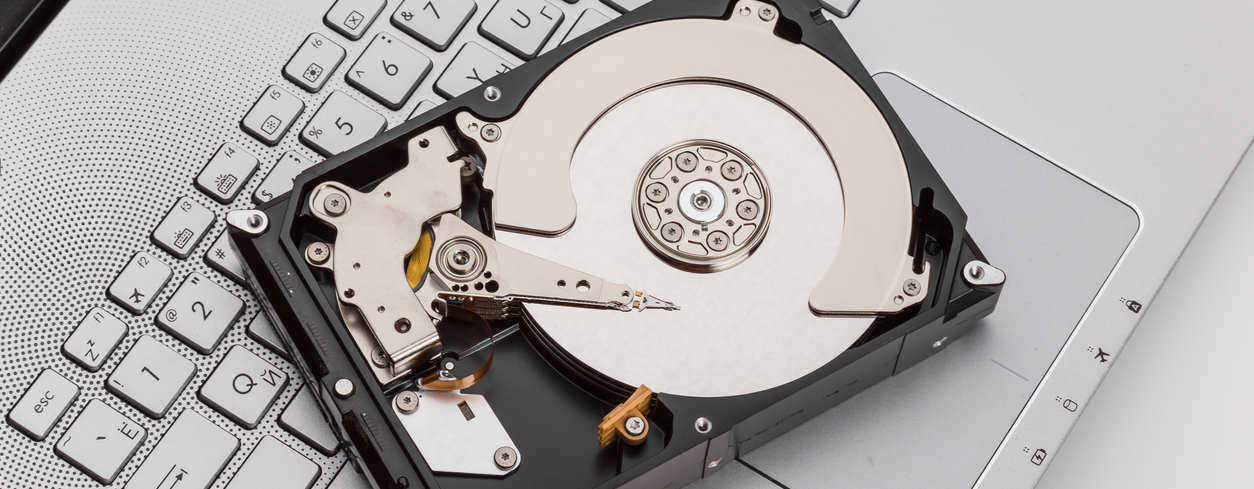
So, HDDs are fragile. You know this to your cost if you’ve ever dropped them (my count is five, by the way. I’m butterfingers).
Then there’s the speed… or there isn’t. A disk can only spin so fast before you need a nuclear reaction for better performance. There’s always an incremental increase, of course. But, it’s safe to say that we’re reaching saturation point sooner than later when it comes to HDD speeds.
As of today, you can expect 150 MB/s write speed at best. The number pales when you compare it with SSD speeds.
But, when all this is said and done, it’s important to know and really understand that HDDs are amazing. Most of that is down to costs. HDDs are cheap. You can get a TB for 50 bucks. That’s extraordinary pricing.
There’s always been this debate on SSD gaming vs HDD gaming, but the fact is that for most people HDDs are affordable and work just fine. What’s more, HDDs are the preferred method to store large amounts of data, which gamers love to do.
Best HDDs
We have a much more comprehensive guide for gaming HDDs, but here are some that do everything well:
2TB Seagate BarraCuda
When it comes to HDDs, Seagate is one of the most trusted and popular brands in the market. Their products are known to be reliable and are long-lived as well.
The BarraCuda 2TB is a classic case in point. It offers 2 TB space that should be enough to store all the movies and games that you want to. It’s 3.5 inches in form factor, meaning that it won’t eat up all the space in your PC case.
Finally, there’s a warranty. Seagate, with BarraCuda, offers a 5-year limited warranty. This is actually one of the best in the industry. Speeds are great too, at about 170 MB/s.
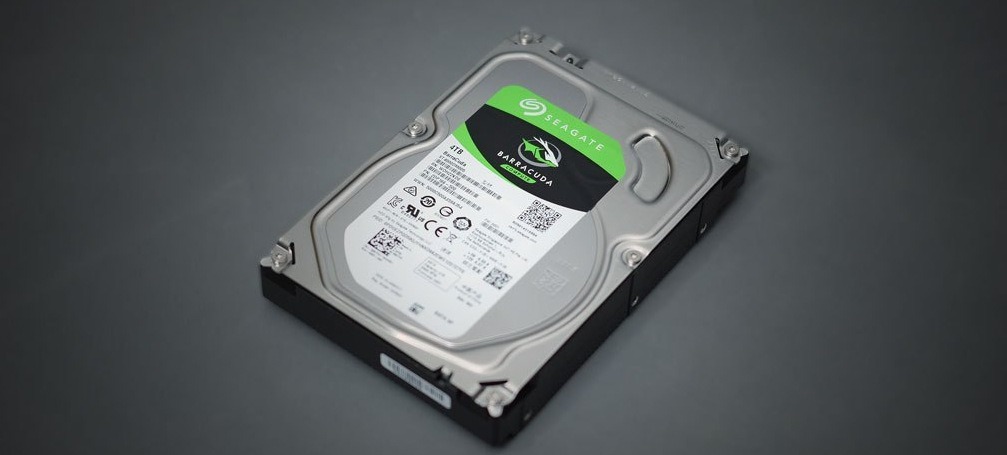
If you’re looking for a decent size, long-lived, reliable storage drive, there aren’t a lot of products better than the 2TB Seagate BarraCuda.
WD Black 6TB
The Black is actually a very popular hard-drive with the media community. If you’re someone who does a lot of video creation or editing, chances are you’ve heard about the Black.
There are two aspects that make this a popular model — speed and size. The WD Black is a 6TB dark disk. That’s a lot, obviously.
The real advantage that the Black offers is the speed at which it works. It has a dual-core processor inside it that enables it to offer transfer rates of up to 220 MB/s. For an HDD, that’s incredible speed, especially with the amount of data that it can store in the first place.
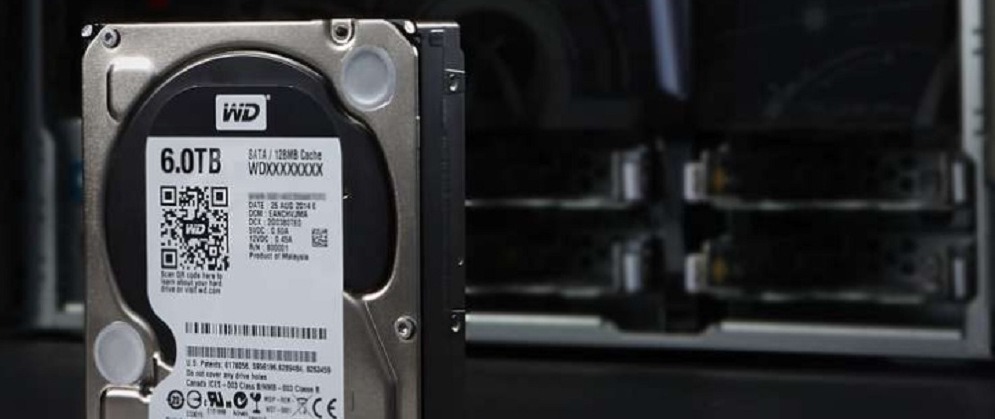
What’s more, it also comes with a five-year limited warranty.
All this goodness costs $227 as of today. In comparison, the Samsung 860 SSD, which has a 2TB capacity costs $1 less. That’s not a failing from Samsung, mind you. SSDs are expensive. But the price just goes to show how much value for money HDDs truly offer.
SSHD — Solid State Hybrid Drives
An SSHD, in essence, is “Small capacity SSD + Large capacity HDD”. A storage equivalent of a Toyota Prius, if you will.
So, we’re looking at, for example, a 12 or 18 GB SSD (you can even get 128 GB SSD) paired with 1TB HDD.
What’s the use, you ask?
Well, anything that needs to be stored long-term, say movies and games, is stored on the HDD. Your OS and things that help your system speed up are stored in the SSD. So, your Windows 10 will boot in 30 seconds rather than 15 minutes (which is what mine is doing currently).
The other things I’m referring to are things that can be cached. So, if you use some applications a lot more than others, those will be cached in the SSD.

This is of special importance to us, gamers. We, at any given point of time, are into a few games. We play these games for hours on end and switch off the PC. Having a little SSD helps enormously here. It improves load times for those games and you don’t have to spend a ton for that extra speed.
If you decide to play other games a lot, the SSD will simply purge the former games and cache the data for the new ones. It’s a nifty piece of kit to have.
The disadvantage is obvious. The SSD is just cache storage in this setup. So, write and read speeds are very much in the 150 – 200 MB/s range. Also, if you use a wide variety of applications every time you switch on your PC, then there’s really no point in buying an SSHD. It’ll simply be useless.
Best SSHDs
Seagate FireCuda — 2 TB/8 GB
The FireCuda is the flagbearer of SSHDs. It’s the most popular one on sale. You can get 1 TB and 500 GB versions as well. With 8 GB SSD storage and 64 MB head cache, it’s the ultimate mid-level setup.
The read/write speeds, as expected, aren’t at SSD levels. You can expect about 170 – 200 MB/s. It’s not bad at all. In fact, it’s one of the fastest SSHDs out there.

So, if you’re looking for a blend of good storage capacity paired with a bit of SSD, the FireCuda will not disappoint you.
WD Blue SSHD
If you’re simply not satisfied with 2 TB storage, the WD Blue might just be the answer for you. It’s a 4 TB hard-disk paired to an 8 GB flash SSD storage.
It’s not really that different from the FireCuda, to be honest. You’re just getting more HDD storage here. Again, creative professionals will like this.

8 GB SSD is just enough to push those render times and load times from ‘I get old in front of my computer’ to ‘It’s just 20 more hours’.
SSD, HDD, SSHD — Which one should you buy?
There is no simple answer, I’m afraid. Actually, there is. SSDs are the best, it’s simple.
But if you live in the real world and aren’t filthy rich, price is a serious consideration. You’ll get hundreds of experts online who will simply tell you to buy an SSD. But, that’s not the best choice, actually.
If you’re building a PC on a budget and you have lots to store, there’s no point in spending on an SSD. They’re simply too expensive. HDDs are better in that case.
However, if you’re ready to pay for excellent, high-speed performance, or if you’re a buyer for a company with good tech-budgets, SSDs are the way to go. After all, they are the fastest kids on the block.
The SSHDs are best if you use them as a stop-gap arrangement. It’ll at least be a couple of years until SSDs get competitive, at least with HDDs. If you don’t want to spend too much on SSDs but still want that performance (briefly, even), SSHDs are what you’re looking for.

For gamers, it all depends on your style of gaming. If you’re someone who plays only a couple of games at a time, SSHDs make sense. Or else, you’re better off with plain HDDs.
Conclusion
Like with most things tech, what works for others might not work for you. The product that you eventually choose must be relevant to you and solve your problems.
It’s the same with storage drives. Take a step back and consider your needs carefully before you go out and spend a ton on some storage drive.
After you do buy one, let us know which one you bought because we love hearing from you.
Happy shopping, now!